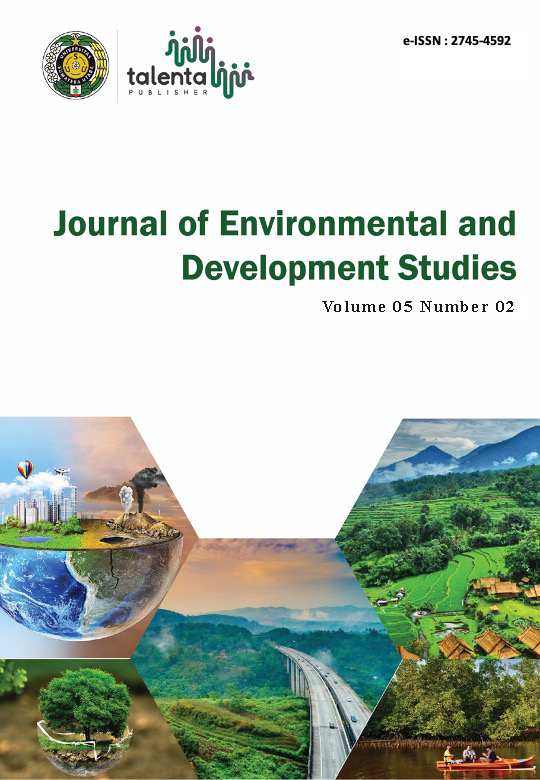Management Strategy for Public Green Open Spaces in Medan City Using SWOT Analysis
DOI:
https://doi.org/10.32734/jeds.v5i02.18179Keywords:
Environmental, Green City, Green Community, Population DensityAbstract
Medan City, the third-largest city in Indonesia, faces significant challenges in managing its public green open spaces (RTH) due to high population density, rapid urbanization, and insufficient green space, which falls far short of the 30% mandated by law. This research assesses the management of public green spaces in Medan through a SWOT analysis, revealing internal strengths such as a Regional Spatial Plan and government commitment, alongside weaknesses like suboptimal management, lack of coordination between agencies, and inadequate regulations. External factors, including opportunities from NGO funding and potential land acquisition, contrast with threats like rapid population growth and misuse of green spaces. Through data collection methods, including focus group discussions, questionnaires, and interviews with key stakeholders, the research identified key areas for improvement in green space management. Strategic recommendations include strengthening policies, increasing public awareness, optimizing cross-sector collaboration, and promoting sustainable urban planning. Additionally, leveraging green spaces for economic growth through multifunctional uses can enhance their value to the community. This study concludes that public green open spaces in Medan City can contribute significantly to sustainable urban development and environmental balance if managed more effectively, with better coordination, stronger regulations, and resource allocation. The findings aim to provide valuable insights for urban planners and policy makers in achieving urban sustainability goals.
Downloads

Downloads
Published
Issue
Section
License
Copyright (c) 2024 Journal of Environmental and Development Studies

This work is licensed under a Creative Commons Attribution-ShareAlike 4.0 International License.













